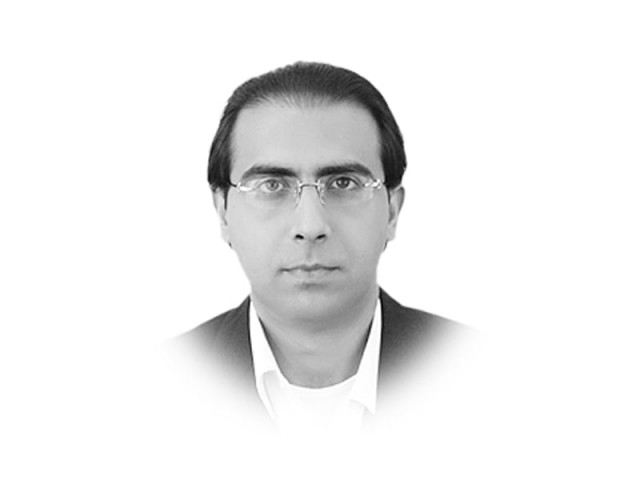Reimagining Ourselves and the Enemy
The real problem is that the State is failing at what it claims to be its defining features — Security and Ideological

The writer is a Lahore-based lawyer. The views expressed by the author are his own
saroop.ijaz@tribune.com.pk
One can go on with these questions for a while. The main contention is not to absolve any foreign intelligence agency of wrongdoing. Evidence should be brought forward and presented in domestic courts to convict operatives working here and in international forums to exert diplomatic pressure. The major concern is elementary, the Ismaili massacre, like the APS attack, was a cause for introspection regarding how deep the rot has spread, regarding how murderous the adversary is and finally, how much grit is required to fight the fight. That moment might have been lost. It might have been lost to being resigned to a narrative of passive victimhood (side point: if foreign actors are creating this havoc, it does not cover the state or the government in glory to admit that they are helpless).
The present strategy to fight the fight is to resort to ‘patriotism’. The standing assumption is that if all of us become ‘good Pakistanis’, the war will be won. The foreign enemy is an enemy that all of us are familiar with and hence, it can and will be used to galvanise. In form this is a sound strategy. However, as it presently stands in substance, it is deeply problematic. To phrase it differently, unless we can agree on notions of ‘patriotism’, ‘nationalism’ and ‘good Pakistanis’, this means nothing. Can ‘good Pakistaniat’ be compatible with declaring any other sect ‘kafir’? Is there a place for minorities in the state-spearheaded notion of ‘patriotism’? Is it useful to rob the victims of their individuality (“Don’t say Ismailis are killed, Pakistanis are killed”. Sure, however, what about the minor point of them being killed only for the reason that they were Ismailis)? On the flipside, the adversary is stripped of all nuance and complexity and becomes a monolith and a stereotype/caricature, foreign, far away, dark archenemy back to its old tricks, etc.
In an ideal world, the recommendation would be for this country to be secular; a moot point for now. The real problem presently is that the State is failing at what it claims to be its defining features — Security and Ideological. It is not an exceptionally strong security state where either foreign intelligence agencies operate with impunity or armed militant groups commit daylight murder. The monopoly over violence is non-negotiable in a security state (North Korea). On the ideological front, true ideological states are repressive machines, however they enforce the singular ideological narrative of the State and interpretation, particularly when it relates to places where religion is not privatised (Saudi Arabia and Iran) and the obnoxious business of excommunicating people from faith is carried out by the State. Fatwas targeting governors and government ministers are unthinkable.
The fact that the State of Pakistan is failing to be North Korea or Saudi Arabia is a cause for some joy. However, spirit sinking and scary is the fact that it continue to try.
Framing things in the ‘nationalist’, ‘us versus the world’ lens is also unhelpful at another level — operational. There are policies and historical questions of why the murderers and their apologists thrive within us, however, there are simpler questions with equally terrifying answers. For the moment, let us ignore the question of who did it and why and ask how does a group of killers stop a bus in one of the busiest cities in the world and execute almost four dozen people and how do they get away? This is not a question of willingness; this is a function of incapacity. This is the level of the Police. This will not be solved by shrieks of revenge and chest-thumping but by the mundane yet supremely important business of having functional local governments and a professional and accountable police force. Apex committees will not solve this either.
The present strategy to combat terror comes with an assumption about the perceived duration of the conflict and it is an incredibly short one. After the APS attack, the State went into a national security frenzy and began executing people who were unrelated to the attack, military courts shrouded in secrecy were established and there was the use of draconian legislation such as the Protection of Pakistan Act (PPA) since ‘desperate times call for desperate measures’. While the measures are indeed desperate, the times show little sign of change. This is a long war and requires a shift in our notion of who ‘we’ are since that will define who the enemy is.
If recourse is to be made to ‘patriotism’ and ‘nationalism’, then we (the people and the State) have to redefine these concepts. The present notions are exclusionary and paranoid. The starting point is a State where no one (including the State) can declare anyone to be an ‘infidel’, preach hate, and above all, is allowed to inflict violence based on the hate. The threats being made against the good Minister, Mr Pervez Rashid, capture the essence of our problem; a political government unwilling to say a word in defence of one of their own and a State unwilling to see the clear and present enemy at home.
Published in The Express Tribune, May 17th, 2015.
Like Opinion & Editorial on Facebook, follow @ETOpEd on Twitter to receive all updates on all our daily pieces.














COMMENTS
Comments are moderated and generally will be posted if they are on-topic and not abusive.
For more information, please see our Comments FAQ